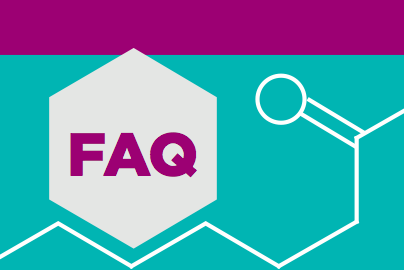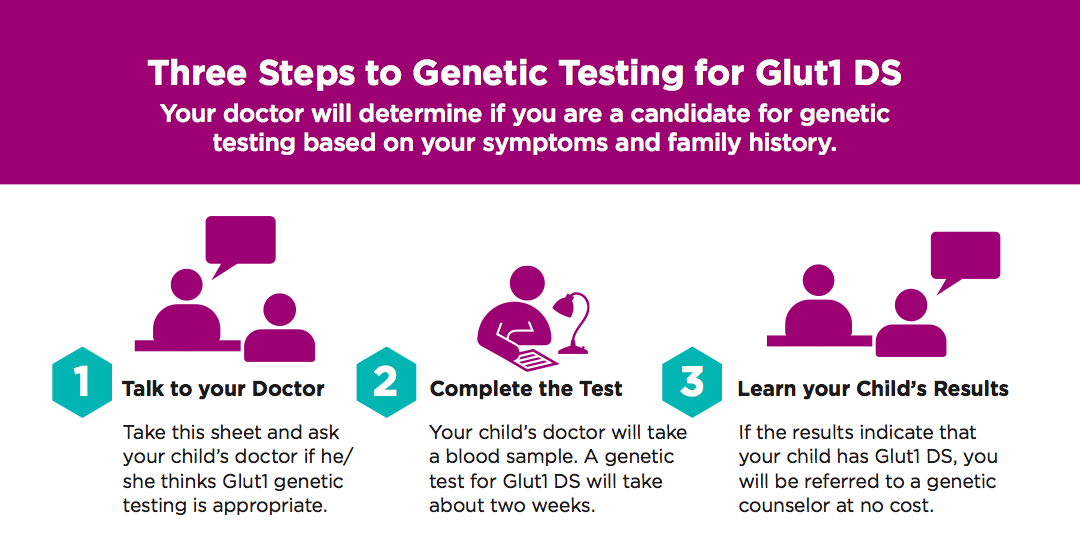Talk to your doctor about Glut1 Deficiency Syndrome
Many neurologic conditions share the symptoms of Glucose Transporter Type 1 deficiency syndrome (Glut1 DS), a rare genetic disorder. Glut1 DS symptoms are:
- Seizures
Seizures may appear differently in each person, and not all people affected by Glut1 DS have seizures. Absence seizures, in which a person appears to lose awareness or stares into space (and does not respond), are common in Glut1 DS.
- Developmental delay
Children affected by Glut1 DS may experience motor (movement) and developmental delay including learning disabilities and language difficulties.
- Movement disorders
People with Glut1 DS may experience abnormal limb movements such as twitching, flailing, writhing and poor balance. These can be ongoing or occasional. Problems walking or running may be a sign of a movement disorder. Additionally, abnormal, involuntary eye movements that cannot be controlled have been found in people with Glut1 DS.
A genetic test can help identify Glut1 DS as the underlying cause of neurologic problems.

Q: How does Glut1 DS affect someone?
A: In people with Glut1 DS, glucose is not adequately transported into the brain. Because glucose is the primary source of energy for the brain, the brain has inadequate energy in people affected by Glut1 DS.
Q: Who gets Glut1 DS?
A: About 10% of patients affected by Glut1 DS inherit it from one of their parents. That means about 90% of people affected by Glut1 DS are the first ones in their family to have Glut1 DS from a change in the Glut1 gene (called a mutation).
Q: Why get tested?
A: Glut1 DS may be underdiag- nosed. It is believed that 1% of all people with generalized epilepsy and 10% of children with early- onset absence epilepsy (age 0-4) may have Glut1 DS.

Frequently Asked Questions about Genetic Testing
Q: What is genetic testing?
A: Genetic testing takes place when healthcare professionals look at DNA to find changes or alterations in genes that can cause disease. In this case, healthcare professionals will look at a blood sample to analyze the Glut1 DS gene.
Q: Will results be kept confidential?
A: Yes, you or your child’s test results will be kept confidential. Only you and your doctor will know the results of your genetic testing. Your child’s genetic testing results will not be shared with your insurance company or Ultragenyx. Ultragenyx will receive information regarding the overall testing results for the program, but will not be given information that could connect the result to your child.
Q: What will the results show?
A: The results will identify any changes (called mutations) in the gene that causes Glut1 DS. If your child has a gene mutation in the Glut1 gene, a genetic counselor will be available to help answer your questions on the phone.
Q: Will the genetic test cost anything to me or my insurance company?
A: No. Ultragenyx Pharmaceutical Inc. is sponsoring genetic testing for Glut1 DS at no cost to you or your insurance company, whether the test shows a Glut1 gene mutation or not.
For more information on Glut1 DS, please visit www.Glut1Study.com.
Your doctor can order genetic tests by contacting [email protected].

Stay Connected
Sign up for updates straight to your inbox.
